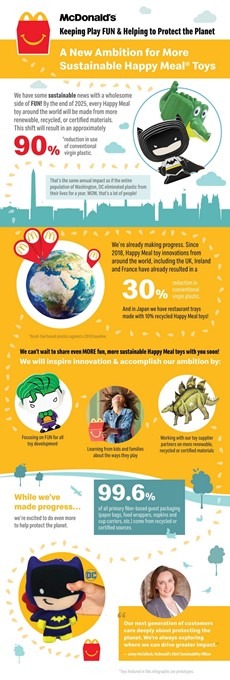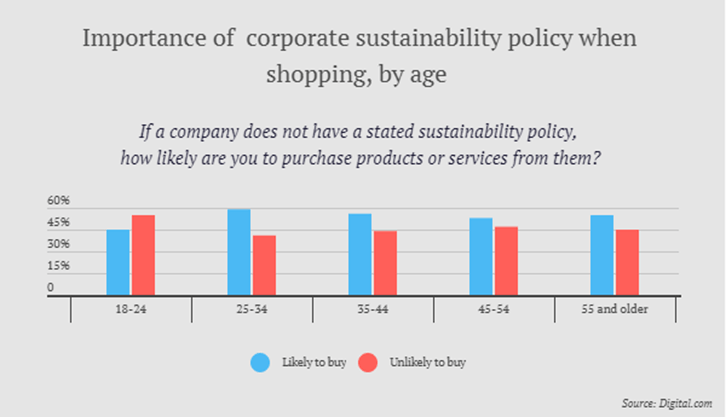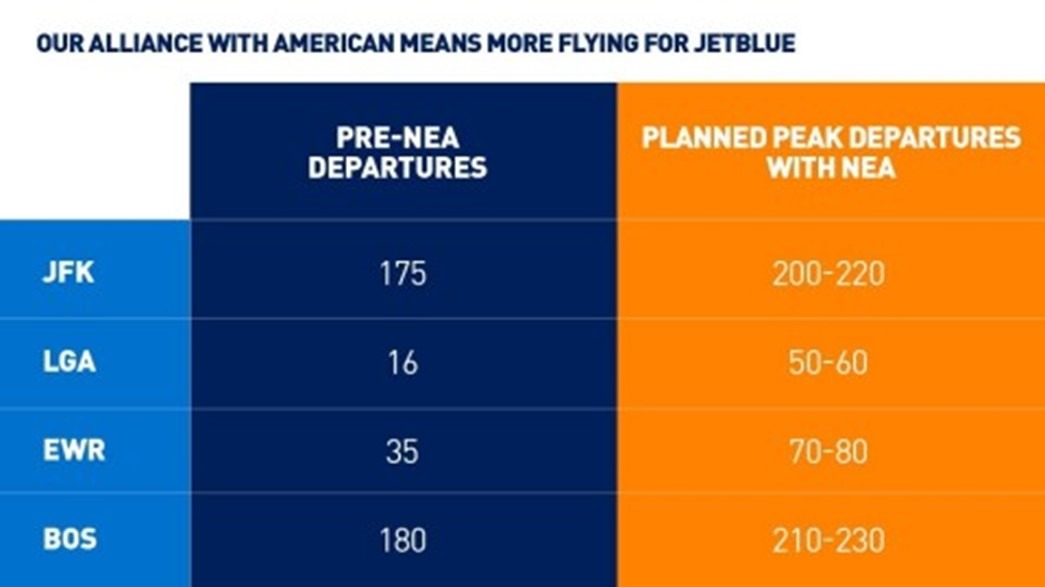Google buys $2.1 billion office building in NYC, patrons avoid companies that lack sustainability and DE&I policies, and DOJ sues American Airlines and JetBlue
Also: McDonald’s makes sustainable Happy Meal toys, Amazon lobbies to legalize marijuana, and McKinsey & Company comments on explainer video series for kids.
Hello, communicators:
McDonald’s is starting to make the toys that come with its Happy Meals more sustainable by building them with renewable, recycled or certified bio-based and plant-based materials. The fast-food giant has set a goal to accomplish this by 2025.
“Making our toys out of renewable, recycled, or certified materials will result in about a 90% reduction of fossil fuel-based plastic in Happy Meal toys, from a baseline of 2018,” the company wrote in a blog post. ”For perspective, that’s more or less the size of the entire population of Washington, D.C., eliminating plastics from their lives for a year. And good news: we’ve already started. The transition to more sustainable Happy Meal toys is well underway in countries such as the UK and Ireland, and complete in France. Efforts around the world, including these, have resulted already in a 30% reduction in virgin fossil fuel based plastic use since 2018.”
Much like Lego’s sustainability campaign around recyclable play bricks, McDonald’s explained these efforts with an easy-to-understand infographic:

McDonald’s use of bright and colorful visuals in this campaign, including its YouTube video and infographic, further shows how the company is aiming its sustainability messaging squarely at children, the same audience that enjoys Happy Meal toys in the first place. The company’s stated benchmarks, meanwhile, contribute to larger trend that has seen brands including L’Oréal, Netflix and more establish a timeline for sustainability progress that both holds those companies accountable and creates a narrative that consumers track.
Here are today’s top stories:
Google stresses employee collaboration and community building with NYC office
Google has announced plans to buy an office building on Manhattan’s Upper West Side for $2.1 billion, marking the most expensive sale of a U.S. office building since the pandemic began. While Google announced that employees will not be expected to return to the office until January 2022, chief executive Sundar Pichai has stressed that the company will embrace a hybrid work model upon offices reopening that allows employees to work remotely two days per week.
The Wall Street Journal reports:
“We know that our employees, in order to really be happy and productive, need to collaborate,” said William Floyd, Google’s director of public policy and government affairs. “Because of that need to collaborate, we’ve been investing more and more in office space.”
Google explained the decision further in a blog post:
As Google moves toward a more flexible hybrid approach to work, coming together in person to collaborate and build community will remain an important part of our future. It is why we continue investing in our offices around the world. Our decision to exercise our option to purchase St. John’s Terminal further builds upon our existing plans to invest more than $250 million this year in our New York campus presence. It is also an important part of meeting our previously announced racial equity commitments, which include continuing to grow our workforce in diverse communities like New York.
What it means:
Because Google was one of the biggest companies to embrace fully remote work when it allowed all employees to work remotely in Spring 2020, its messaging sends a signal that even tech companies with successful remote workflows see the value in a hybrid work solution.
Moreover, Google’s focus on racial equity commitments and revitalizing New York also highlights how your brand or organization can tie any eventual return to the workplace strategies or reopening plans to purpose work that starts with the employee experience before radiating outward to do good for the larger local community.
MEASURED THOUGHTS
A new study by Digital found that 45% of Americans are unlikely to patronize companies that don’t have a stated sustainability policy and 40% are unlikely to patronize companies without a published DE&I policy.

“In our highly polarized climate, nearly every aspect of daily life can be considered an opportunity to make a statement about one’s views on political and social issues—including where we spend our money,” writes marketing executive Huy Nguyen in his analysis of the findings. ““Companies need to consider if their core values and brand strategy match what they wish to communicate on political or social issues. Consumers value authenticity and are quick to call out companies that may take a stand to appropriate a cause without having existing practices to support it.”
TACTICALLY SPEAKING
Global management consulting firm McKinsey & Company has opened up about the intentions of “McKinsey for Kids,” its series of four interactive digital stories launched at the start of the pandemic. The series, which McKinsey says was intended to aid parent employees, seeks to explain what the firm does to children around topics including workforce automation, conservation and more.
The series has close to 125,000 views thus far—from kids, parents and also teachers—and that’s without any dedicated push to grab readers. “The buzz has been good,” says Raju Narisetti, head of the global publishing unit. “They have become quite popular inside and outside McKinsey,” he says, adding that a fifth installment is in the works.
At times, though, McKinsey can’t help but revert to corporate jargon, like when it refers to TikTok as a “platform” or mentions improving a client’s “broader business portfolio.” Torea Frey, McKinsey’s managing editor for digital publishing, said her team has gotten better at using simpler language with each new edition.
As Facebook’s failed Instagram for Kids project has proven, marketing to children is a slippery slope that invites added scrutiny around your brand’s intentions and impact. To that end, McKinsey for Kids has been understood by some to be damage control after the company’s role in helping the Sackler family market opiate drugs became national news earlier this year. Nonetheless, McKinsey’s explanation that this initiative originated with the children of its employees and efforts to help working parents during quarantine helps offer much needed context.
By writing for kids, McKinsey’s editorial team also improves on its ability to speak simply about its work by replacing jargon with more humanistic, easily understandable words and phrases.
THE WORKPLACE
Amazon is lobbying the government to make cannabis legal in a move that the e-commerce giant says will make its hiring practices easier. This announcement follows Amazon’s recent announcement that it will no longer screen potential employees for cannabis use before hiring them.
“Given our previous support for legalizing cannabis at the federal level, as well as expunging certain criminal records and investing in impacted businesses and communities, Amazon recently announced our support for, and began actively lobbying on, the Marijuana Opportunity Reinvestment and Expungement Act of 2021 (MORE Act),” the company said. “We are also pleased to endorse the recently introduced Cannabis Administration and Opportunity Act.”
“In the past, like many employers, we’ve disqualified people from working at Amazon if they tested positive for marijuana use,” (Amazon consumer CEO Dave) Clark said. “However, given where state laws are moving across the US, we’ve changed course.”
“We’ve found that eliminating pre-employment testing for cannabis allows us to expand our applicant pool,” Amazon senior VP of human resources Beth Galetti said.
Amid a year of accusations around Amazon’s treatment of its workforce, its push for cannabis reform doubles as a reputational salve that sends a message to both current and prospective employees about the company’s culture and values. The company’s focus on changing these policies to expand its applicant pool also serves as a reminder that this age of unprecedented resignations and job changes makes for a great opportunity to re-evaluate your company’s hiring practices and reassess how they fit into your larger mission.
American Airlines and JetBlue respond to antitrust suit
JetBlue and American Airlines (AA) responded to a lawsuit filed yesterday by the Justice Department that alleges a recent co-marketing partnership between the two airlines will eliminate competition in high-traffic travel hubs and ultimately result in higher airfares, fewer options and worse customer service for passengers. The lawsuit claims that the partnership operated as an unofficial merger and accused AA of instigating the alliance to put a lid on JetBlue’s disruptive reputation in the commercial aviation space.
According to American Airlines’ statement:
“Since January, the alliance has brought new services to customers in New York and Boston, including 58 new routes, increased frequencies on more than 130 routes and codesharing on 175 routes, as well as new international flights to Tel Aviv, Athens and Delhi. Delivering on the promise of growth, the Northeast Alliance (NEA) will offer more than 700 daily flights from New York and Boston this winter and continue investment to provide a seamless experience to customers.
“Before the alliance, Delta and United dominated the New York City market. The NEA has created a third, full-scale competitor in New York and is empowering more growth in Boston. Ironically, the Department of Justice’s lawsuit seeks to take away consumer choice and inhibit competition, not encourage it. This is not a merger: American and JetBlue are—and will remain—independent airlines. We look forward to vigorously rebutting the DOJ’s claims and proving the many benefits the Northeast Alliance brings to consumers.”

According to a statement from Jet Blue CEO Robin Hayes:
Our Northeast Alliance (NEA) with American Airlines is an example of how we played offense to not only get our fleet and Crewmembers flying again, but also set up JetBlue for long-term growth and bring more competition to the Northeast. Regardless of what the DOJ claims about us in court and in the media, it’s important you know that JetBlue’s commitment to competition and low fares remains as strong as ever. This is not at all like a merger with American—we have two different business models and are not working together on pricing. It’s also important that you have the full picture on benefits the NEA is already delivering, and I want to reassure you that the DOJ’s action will not affect our plans to continue implementing the NEA.
The irony now is that the government agency responsible for preserving competition is instead trying to take away our ability to further expand our low fares in these markets. What the DOJ says and does seem to be in conflict—it’s quite puzzling and hypocritical for DOJ to applaud DOT’s recent efforts to promote competition at Newark while standing in the way of JetBlue’s growth. Rather than use the public’s resources to stifle competition in court, DOJ should monitor the NEA’s progress over the months ahead and hold us accountable for delivering the Customer benefits we’ve promised.
Why it matters:
As airlines struggled with grounded flights, operational errors and employee retention during the first half of 2021, each airline’s statement intentionally positions the partnership as a means to provide more stability and service to passengers. While JetBlue’s statement has the edge over AA’s for its accompanying infographic and emphasis on refuting specific points in the DOJ’s filing (like low fares), both statements effectively hit on similar points while being written in distinct styles that echo each airline’s respective brand voice.
Because litigation is ongoing, both airlines have also offered hard numbers in their statements that can be called into question or used against them as proceedings (or future flight cancelations) continue.








Something for nothing sounds too good to be true but Google and Facebook actually deliver this. Google gives us free access to a world of information, and Facebook helps the public to freely share information. But look what a difference there is in PR, how each company defends its public esteem.
“Do unto others” is clearly an important idea to Google.
WILLIAM FLOYD, the public policy chief, expresses company eagerness to help employees be “really happy and productive,” and to meet racial equity commitments partly by growing the workforce in diverse communities like New York.
SUNDAR PICHAI stresses allowing employees to work remotely two days a week (which is more positive than saying it requires work in the office three days a week).
But look what today’s New York Times says about three Facebook executives.
NICK CLEGG, VP of public affairs, says one-sided WSJ articles “contained deliberate mischaracterizations.” But who cares?
SHERYL SANDBERG, Facebook’s chief operating officer, says that storming of the capitol January 6 “has little to do with Facebook,” but do even 10% of people care?
“Who gives a damn” is a question Facebook should consider so the public will oppose government actions that could cost Facebook tens of billions per year. Like cancer kills one in five of us so if Facebook announces budgeting a billion over the next ten years to support the hunt for a cancer vaccine by America’s Memorial Sloan Kettering Cancer Center, would 200 million Americans strongly oppose our government or anyone else harming Facebook’s financial
ability to keep protecting us? Surprisingly, MSKCC already has FDA approval for a limited-use cancer vaccine, and articles by MSKCC’s Dr. Andrew Zelenetz
are read worldwide. .
Public decisions will be made by the public, not the boss, so PR wisdom is to focus on communicating what the public cares about not on arguments that the boss and company executives care about.
Something for nothing sounds too good to be true but Google and Facebook actually deliver this. Google gives us free access to a world of information, and Facebook helps the public to freely share information. But look what a difference there is in PR, how each company defends its public esteem.
“Do unto others” is clearly an important idea to Google.
WILLIAM FLOYD, the public policy chief, expresses company eagerness to help employees be “really happy and productive,” and to meet racial equity commitments partly by growing the workforce in diverse communities like New York.
SUNDAR PICHAI stresses allowing employees to work remotely two days a week (which is more positive than saying it requires work in the office three days a week).
But look what today’s New York Times says about three Facebook executives.
NICK CLEGG, VP of public affairs, says one-sided WSJ articles “contained deliberate mischaracterizations.” But who cares?
SHERYL SANDBERG, Facebook’s chief operating officer, says that storming of the capitol January 6 “has little to do with Facebook,” but do even 10% of people care?
“Who gives a damn” is a question Facebook should consider so the public will oppose government actions that could cost Facebook tens of billions per year. Like cancer kills one in five of us so if Facebook announces budgeting a billion over the next ten years to support the hunt for a cancer vaccine by America’s Memorial Sloan Kettering Cancer Center, would 200 million Americans strongly oppose our government or anyone else harming Facebook’s financial
ability to keep protecting us? Surprisingly, MSKCC already has FDA approval for a limited-use cancer vaccine, and articles by MSKCC’s Dr. Andrew Zelenetz
are read worldwide. .
Public decisions will be made by the public, not the boss, so PR wisdom is to focus on communicating what the public cares about not on arguments that the boss and company executives care about.